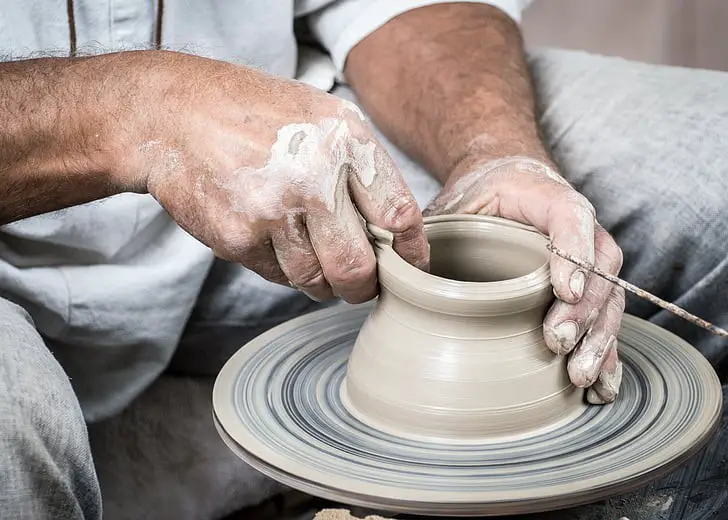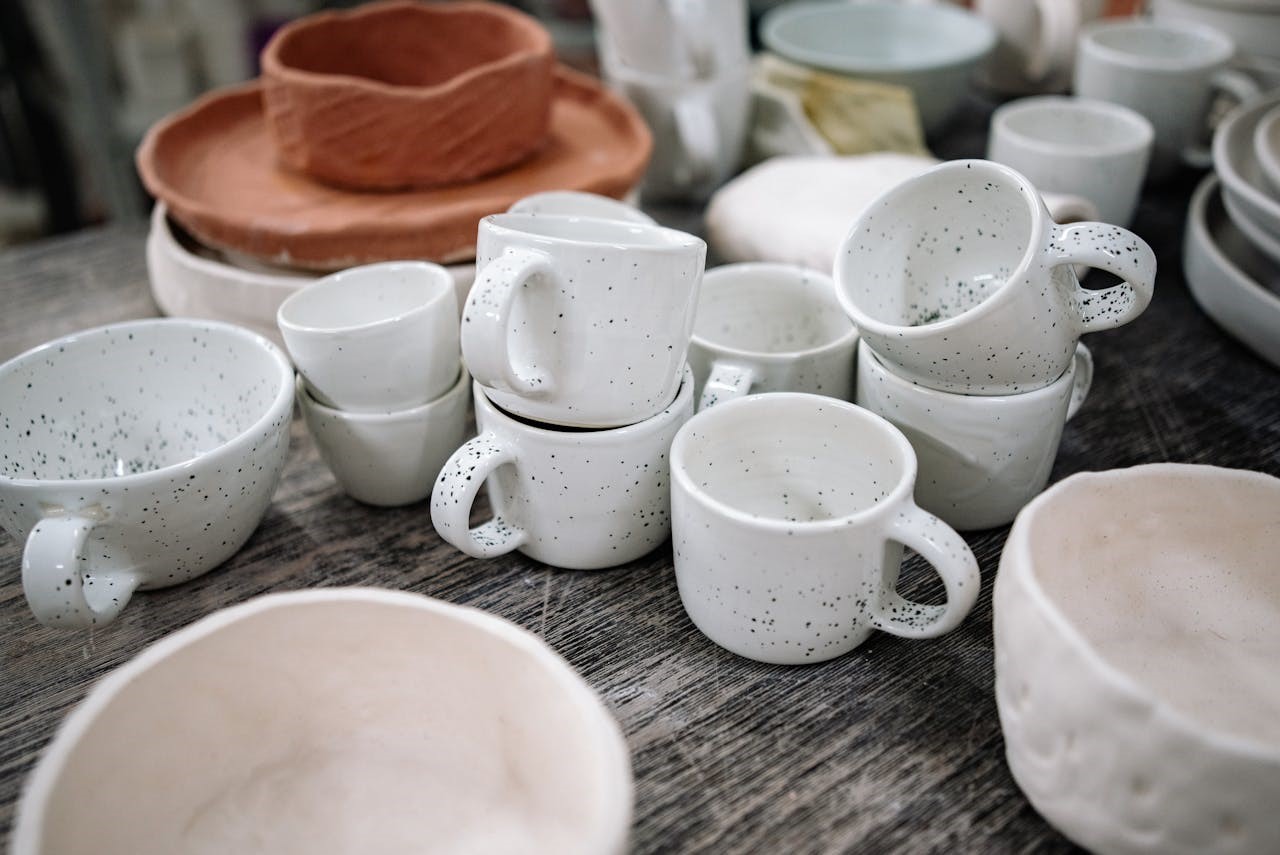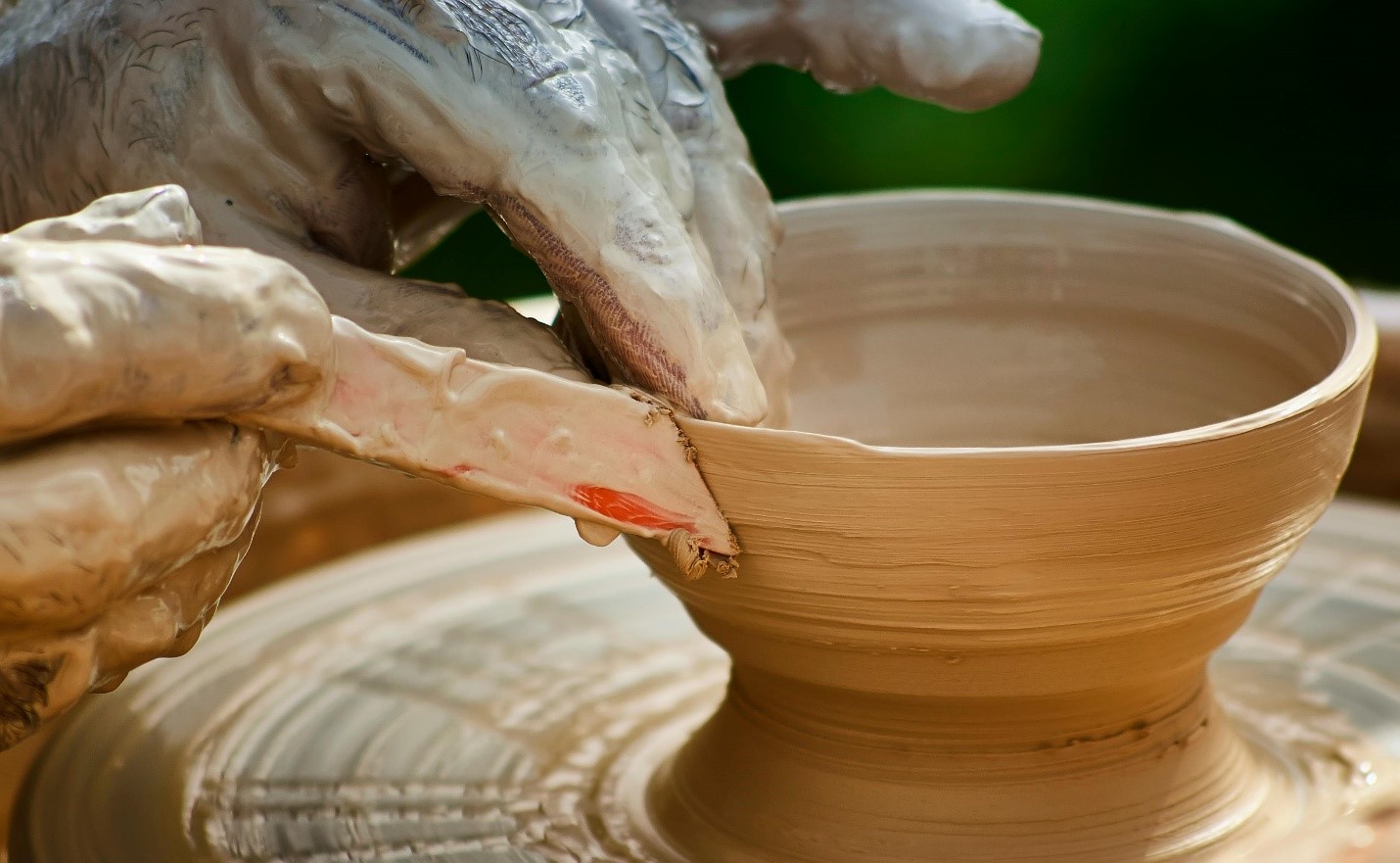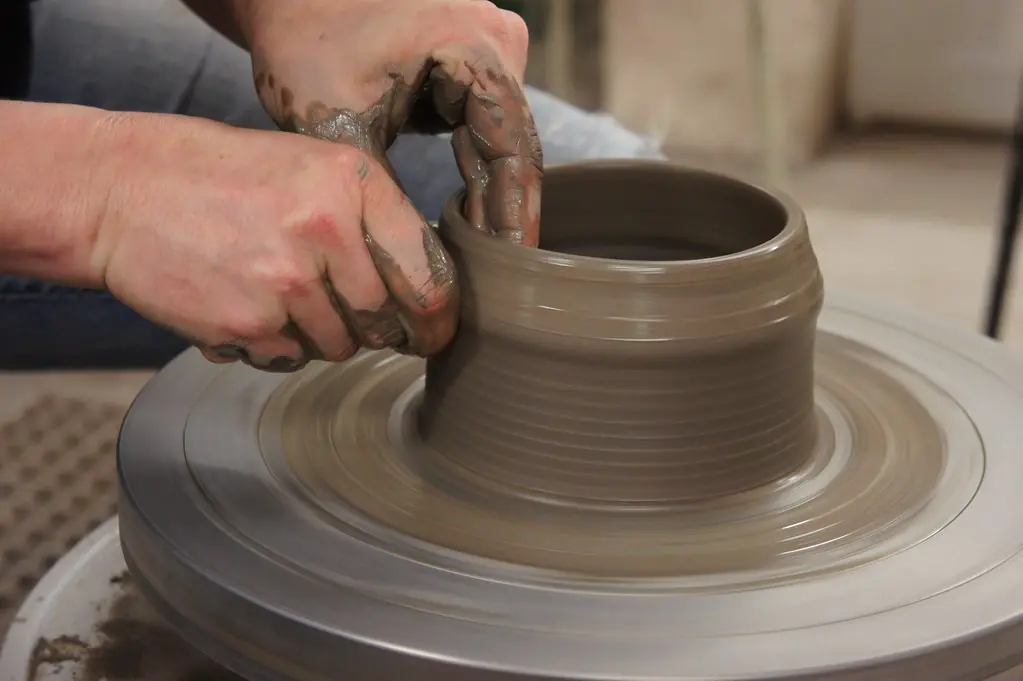Learning pottery as a hobby or career can be a fun experience. You might try and enroll in a pottery class or ask a friend of yours to teach you the basics. However, if you plan on learning pottery all by yourself, the road might not be easy. With the right dedication and effort, you can master the art in a given time. Mistakes will be made. But, you need to learn from your mistakes and work creating something extraordinary from clay.
Difference Between Self-Directed vs Self-Taught Pottery
There is a big difference between the terminologies self-taught and self-directed. If you are planning to be a self-taught artist, it means that you have sought zero help whatsoever. You would have to learn all the tips, tricks, and techniques by yourself with no external help, including videos, audio, physical help, or from any type of text.
On the other hand, self-directed pottery practice means you planned your own learning course & used the resources brought to you by professionals to help you learn the art. So, if you are someone who wishes to learn from sources such as YouTube videos, suggestions, guides, books, or similar platforms, you are a self-directed pottery enthusiast.
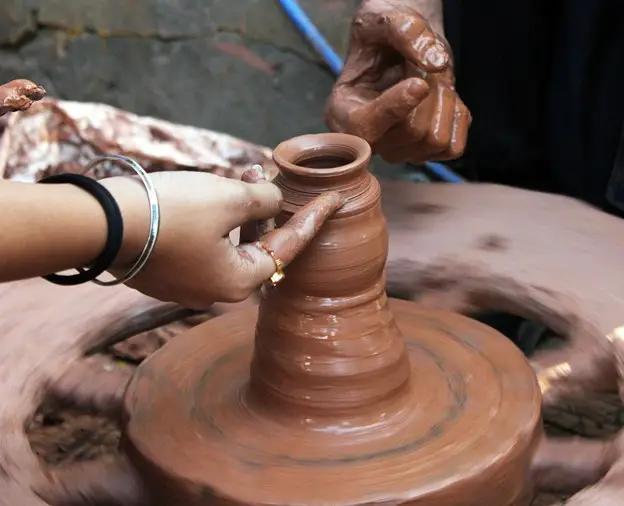
Most of us today are self-directed and learn the techniques from ideas and inspirations available online. So, if you are one of them, here are some tips you can try.
1. Select Projects that Help You Master Specific Skills or Techniques:
Your choice of pottery skill can vary from hand-building to mixing glazes. The key is to move one step at a time. Select a project that lets you master one technique at a time. Books are an amazing way to learn more about pottery. However, it is just as crucial to take a peek at live demonstrations.
You can look for training videos online or get help from an online community. Being a part of a community with experienced potters will help with faster skill improvements.
2. Set Your Desired Goals with Some Actionable Steps:
Choose projects with a dedicated timeline and try to master the skills within the set timeframe. For example, 30 days to master glazing or 30 round bowls in 30 days, and so on. This will help you compartmentalize the learning experiences. In simple words, you won’t feel like your project and efforts are all over the place.
With enough repetition, you can tackle the mistakes in a wiser way and avoid repeating them every now and then during the learning process.
3. Find Something that Makes Your Repetitive Practices Fun:
Truth be told, doing the same thing every other day can feel very repetitive and boring. If you are learning something, it has to be a fun-filled task. This will help you keep things going on a regular basis while helping you master the art with ease. So, the key is to change the practice slightly every day to keep up the fun quotient. For example, if you are learning the ways to prepare a bowl, try to decrease or increase the size with each throw. You can also change the shape to make it look different without feeling repetitive.
4. Have Accountability:
When you work all by yourself, you might not find enough inspiration, and at times, you might want to give up. So, ask someone to keep an eye on your progress and help you keep going whenever you lose your morale or inspiration. This accountability will help you keep going even when things aren’t going your way. You can also choose to share what you have learned with a pottery community that you are a part of.
Yes, it would definitely take up longer to master the art of pottery when you do it all by yourself. However, the thrill of doing it all on your own from scratch is something you will cherish for a lifetime.
Plan a Dedicated Setup to Learn the Art
Before you teach yourself the art of pottery making, you need to ensure that you have all the essential tools and ingredients in your dedicated workspace. First, start by selecting a space that is perfect for your pottery escapades. Make sure you aren’t disturbed in this area when working with your clay. Apart from this, here are some basics that you need to keep in mind:
- The floor must be water-resistant & better in terms of cleaning like linoleum or possibly concrete.
- You should also have easy access to surplus water (ensure that no clay goes down the drain!).
- A durable table that you can work on.
- A sturdy shelve for drying the pots works best. An ideal option, in this case, is the Yohkoh Wire Shelve Adjustable Rack. This shelve is coated to protect it from rust, water, or any corrosion.
- A cabinet and any other storage rack for keeping your glazes are essential. Ensure that the cabinet has proper doors that keep your children and pets away.
Important Pottery Tools for Self Learning
When learning pottery by yourself, you can start from the basics. For starters, you should always start forming the pottery work with the use of your hands. However, there are basic tools that you must have when starting out as a crafter.
Here is a complete table of pottery basics that will help you in your self-directed pottery journey!
Pottery Tool |
Usage |
| Sponge | To dab water into the clay or remove excess water |
| 1 Small Bucket | To hold slurry or water while you work |
| 2 to 3 Large Buckets | To carry water for throwing & cleaning purposes |
| Large and Soft Brushes | To brush off any dirt or dust on the pot after it dries up and for painting |
| Trimming Tool | To remove excess clay from the pottery piece |
| Potter’s Needle | To create intricate designs |
| Cutting Wire | To remove the pot from the throwing wheel |
| Durable Box | To help keep the tools properly |
Conclusion
As a newbie, the best trait you can have is to keep patience and rework your mistakes until you achieve success. Working with clay can be a fun and stress-busting experience. At times, you might need help from someone who understands the art in and out. There is no shame in asking for help. Do not forget to be proud of what you make in the process and do share the experience with your colleagues or friends.




